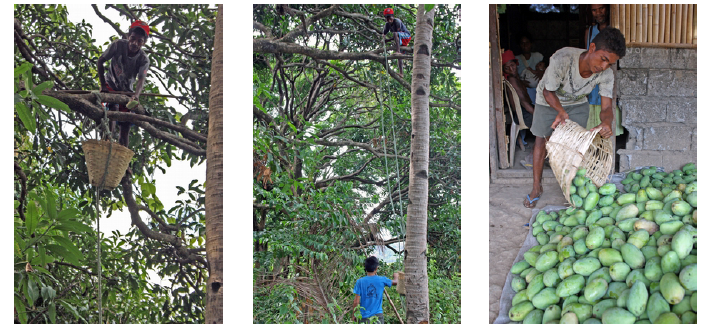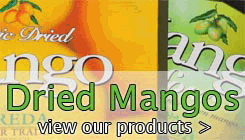After a two hour ride, we arrived at the Aeta Community in Batiawan, Subic Zambales around noontime. Unfortunately, we got stuck on the rough road because of a heavy shower before. With the help of the people from the community, we where able to get the
vehicle back on the road again after a while.

Aeta people harvesting the mangos
Our group of staffers, clients from the PREDA Home for Boys, volunteers and interns seperated to go to the different spots inside the community to sort and prepare the mangos for the further transportation. The Aeta people already collected the mangos and
brought them to several places all over the community.
As I experienced at other communities as well, I could not see the people using any chemical fertilizer or pesticide to make sure that the mangos can be certified as fair tradedand biological.
Beside from the Karabaw mangos, PREDA is also buying the Pico mangos to sell them to Profood, a manufacturer located in Bulacan, Central Luzon. The PREDA dried mangoes and juices to be exported are made of the Karabaw while the Pico mangos are being shipped to Cebu where they are processed to mango puree. The Pico mangos are also being sold to the local markets.

Collecting the mangos from one of the spots in the community
We sorted these different kinds of mangos and put them to the baskets before weighing them. To make sure that the farmers receive the correct payments, the PREDA staffers noted and summarized the exact amount of kilograms of every single farmer. Due to this year’s huge crop, it took us many hours to process all of the mangos. After transfering them to the other vehicles to deliver them directly to Profood in Bulacan, we got back to the PREDA building in Olongapo on the following morning.

